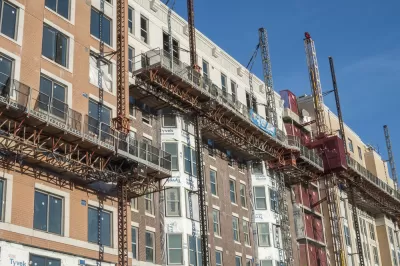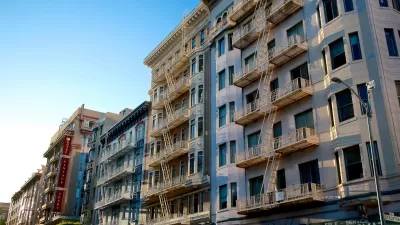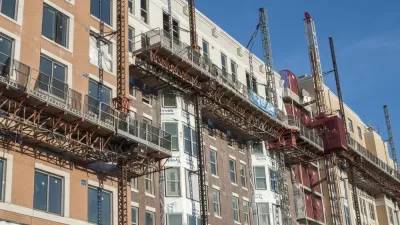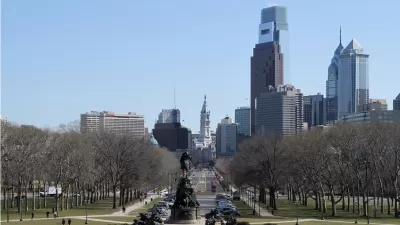In the interest of preserving affordable supply, the District can purchase apartment buildings that would otherwise sell to private developers.

In Washington, D.C., tenants can prevent the sale of an apartment building by banding together to buy it themselves. The Tenant Opportunity to Purchase Act (TOPA) is D.C.'s "best known tenant protection legislation," Carolyn Gallaher writes. But it also has a lesser known sibling that has never been used: the District Opportunity to Purchase Act (DOPA).
"It was designed as a safety net for TOPA. If tenants could not make TOPA work, the city could refuse the sale and preserve the building as affordable housing. In other words, if the tenants' attempt (TOPA) fails, the District (DOPA) would step in and act like a tenant association would: strike a bargain with a developer and preserve some affordable homes."
DOPA passed in 2008, but officials are only now writing implementation regulations. In Greater Greater Washington, Gallaher outlines the different ways the law could play out—covering what might merit public intervention in a building sale, whether the city would partner with a developer or become the building's landlord, and more.
FULL STORY: Passed in 2008, this affordable housing law has never been used. Now DC is finally getting ready for DOPA.

Trump Administration Could Effectively End Housing Voucher Program
Federal officials are eyeing major cuts to the Section 8 program that helps millions of low-income households pay rent.

Planetizen Federal Action Tracker
A weekly monitor of how Trump’s orders and actions are impacting planners and planning in America.

Ken Jennings Launches Transit Web Series
The Jeopardy champ wants you to ride public transit.

Washington Legislature Passes Rent Increase Cap
A bill that caps rent increases at 7 percent plus inflation is headed to the governor’s desk.

From Planning to Action: How LA County Is Rethinking Climate Resilience
Chief Sustainability Officer Rita Kampalath outlines the County’s shift from planning to implementation in its climate resilience efforts, emphasizing cross-departmental coordination, updated recovery strategies, and the need for flexible funding.

New Mexico Aging Department Commits to Helping Seniors Age ‘In Place’ and ‘Autonomously’ in New Draft Plan
As New Mexico’s population of seniors continues to grow, the state’s aging department is proposing expanded initiatives to help seniors maintain their autonomy while also supporting family caregivers.
Urban Design for Planners 1: Software Tools
This six-course series explores essential urban design concepts using open source software and equips planners with the tools they need to participate fully in the urban design process.
Planning for Universal Design
Learn the tools for implementing Universal Design in planning regulations.
Heyer Gruel & Associates PA
Ada County Highway District
Institute for Housing and Urban Development Studies (IHS)
City of Grandview
Harvard GSD Executive Education
Toledo-Lucas County Plan Commissions
Salt Lake City
NYU Wagner Graduate School of Public Service





























